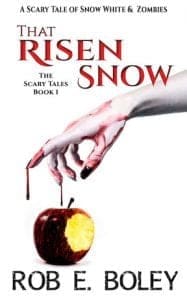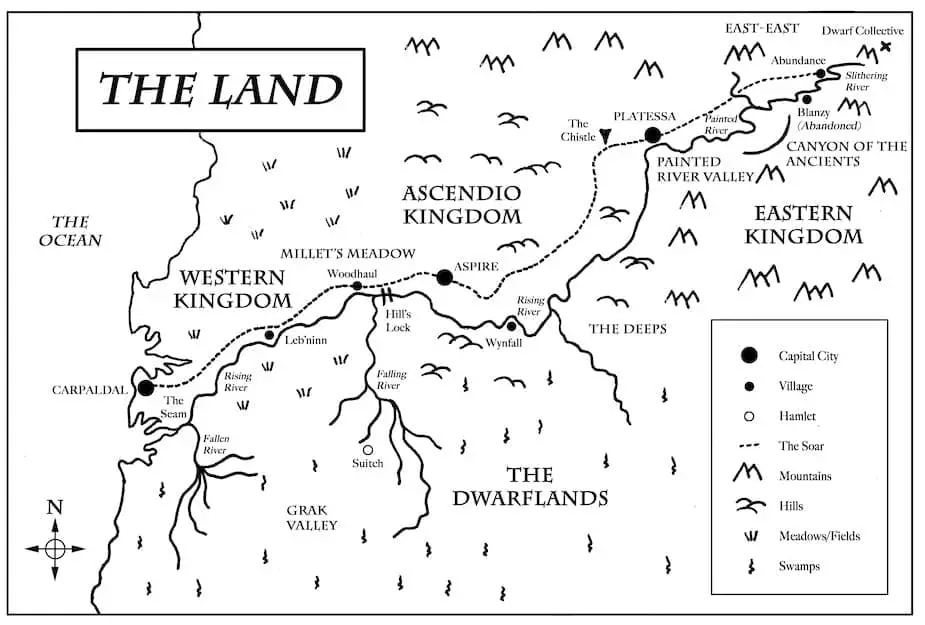The Long Haul: Maintaining Momentum During a Book Series

Closeup on top of old legal or law books with blurred backround
Finishing a novel is a challenge, so it stands to reason that completing an entire series of novels can often feel nearly impossible. I’ve written eight and a half books so far of my ten-novel Scary Tales series, and I’ve definitely learned a bit along the way about the tribulations of working on a series. Below are some of the strategies I’ve used, but first let me frontload you with that all-important backstory.
 The Scary Tales saga started as a simple horror/fairy tale mash-up with a basic premise—what if the Snow White fairy tale didn’t end when the Prince kissed Snow? What if she woke up as a deranged zombie? This idea started as a short story that grew into a novel that I successfully pitched as a trilogy, except as I delved further into this world, I kept discovering new mash-ups of monsters and fairy tales. Red Riding Hood and werewolves. Beauty & the Beast and the Phantom of the Opera. Goldilocks and the Mummy. And so on. Eventually, the series grew into a framework of ten novels.
The Scary Tales saga started as a simple horror/fairy tale mash-up with a basic premise—what if the Snow White fairy tale didn’t end when the Prince kissed Snow? What if she woke up as a deranged zombie? This idea started as a short story that grew into a novel that I successfully pitched as a trilogy, except as I delved further into this world, I kept discovering new mash-ups of monsters and fairy tales. Red Riding Hood and werewolves. Beauty & the Beast and the Phantom of the Opera. Goldilocks and the Mummy. And so on. Eventually, the series grew into a framework of ten novels.
The first seven books in the Scary Tales series were published between 2014 and 2017. Unfortunately, the original publisher went out of business after publishing the seventh book in the series, and I took a two-year hiatus from the series to work on other projects. In late 2019, the rights to publish the Scary Tales were finally returned to me. I could now reissue the original seven books and finish writing the final three books to complete this epic saga. I could’ve simply republished the original seven books as-is, but since writing these first books, I’d discovered so much more about these characters and the world that they inhabit. It seemed a shame not give those early books a fresh pass. Plus, reviewing those first books was a great way to dive back into the Scary Tales world.
It’s been quite a ride working on this series, and I’ve learned a lot along the way. Hopefully some of this advice will prove helpful to you . . .
Lists, Lists, and More Lists
I’m a data analyst by day, so organizing comes natural to me. It’s also been a saving grace for my series. The deeper you get into your series, the more crucial organization will be. I’ve found that it helps to keep various lists to track all the important details, such as:
- Glossary – keep track of the spellings and definitions of terms that might be unique to your world or your characters;
- Timeline – especially if you dabble in flashbacks and have a series that spans generations, you’ll want to keep track of what happens in what order;
- Characters – have some handy way to track the details of your main characters, such as their appearance, desires, fears, injuries, habits, catch phrases, and possessions; and/or
- Loose Ends – for the sake of your readers, also keep a list of unanswered questions and stray tidbits that need to be resolved, as it’s really easy to forget some of these along the way.
I keep all of the above items in a massive planning document that I always keep open while I work on the books. It took awhile to get into the habit of updating these lists but now it’s become part of the process.
Don’t Write Yourself into a Corner
More than likely, you won’t have the luxury of completing your series before the first book is published. I mean, that’s a great problem to have, right? But remember that whatever you write in the first books becomes set in stone once it’s in print. If you’re too detailed about backstory, dates, and such, you can inadvertently write yourself into a corner.
For example, if you’re writing a flashback, you might be tempted to say, “Jollene was eight years old when she ventured alone into the forest for the first time. It was 2052, the summer after the Plagues left her an orphan.” On the other hand, you’ll leave yourself more flexibility later on if you say, “Jollene was only a girl when she ventured alone into the forest for the first time. It was the summer after the Plagues left her an orphan.”
Ask yourself if the specific dates and ages are crucial to the story, and if you definitely want to commit to them for the life of your series. You may find later on that it would make more sense for her to be a little older or younger, or for other events to happen in a different order.

Map It Out
If I had one thing about my Scary Tales series to do over again, it would’ve been to start with a geographical map of the various locations. This series spans over three kingdoms and multiple cities and villages. I more or less kept it all straight in my head, but I really should’ve made a map as I went.
Instead, I had to make on retroactively. As I re-read my series to prepare for the re-release, I noted every single instance where I’d mentioned a landmark and its orientation. I then compiled all those locations and made my own map for the series. It was actually a lot of fun. Fortunately, I hadn’t contracted myself in the original versions of the books, so I was able to fit all the kingdoms, villages, cities, and rivers into a cohesive landscape.
Even if your series doesn’t take place in a fantasy world of your own creation, it’s super helpful to have maps for reference. It’ll help orient both you and the reader.
Walk Away If You Need To
After you finish each book in your series, it’s tempting to plow onward into the next book, and maybe that’s the best thing for you. I’ve found, however, that it’s nice to take a couple weeks off between books and devote those writing days to short stories and poetry. When you’re in the midst of a massive writing project that takes years to complete, sometimes it’s refreshing to actually finish something.
So don’t be afraid to walk away for a few days or weeks. If it helps, give yourself a definite date upon which you will return to the series.
Taking a break can also make you love working on these series all the more. After my own two-year hiatus from my series, writing these characters again was like having a reunion. It’s been surprisingly emotional, and I’m thrilled to be finishing their horrific adventures.
So with that—write on, friends!
Rob










